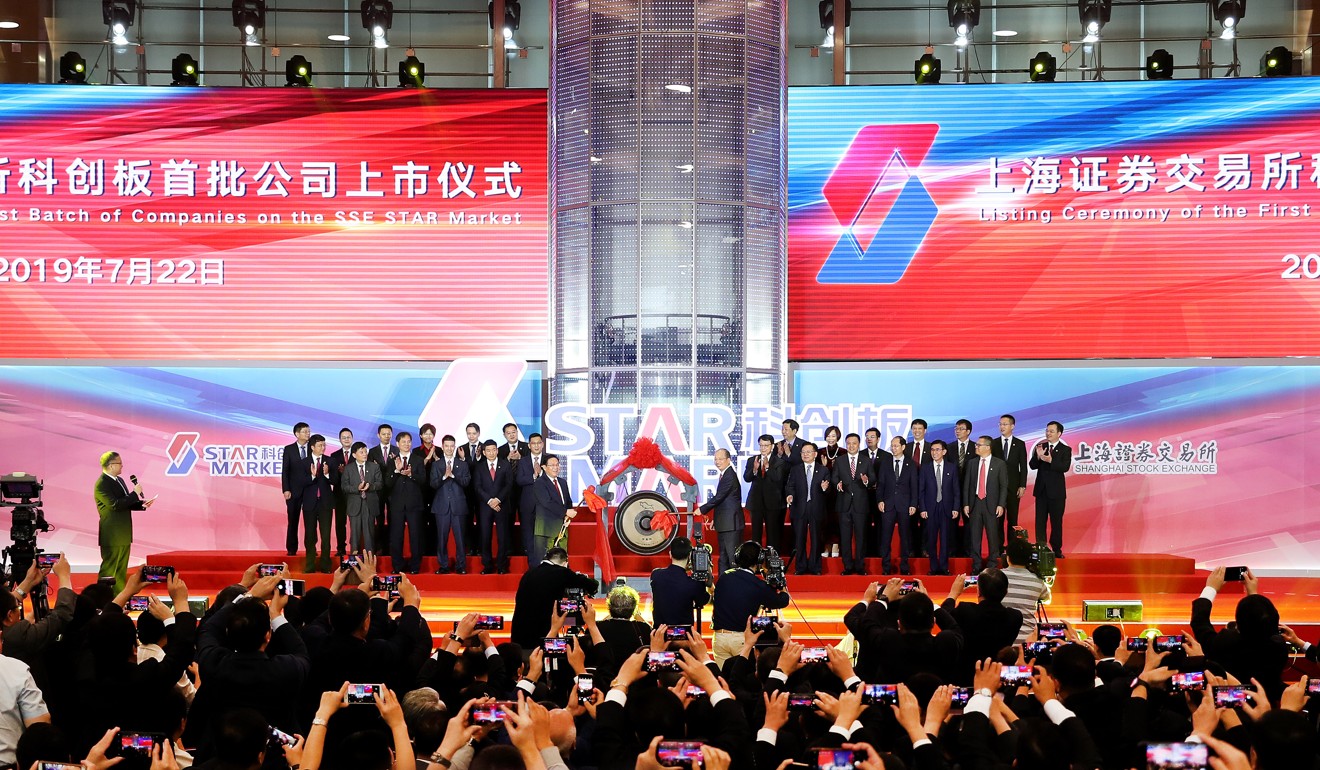
China foreshadows more reforms in initial public offering rules in 2020 to nurture the growth of the ChiNext stock market
- The Central Economic Work Conference identifies the ChiNext board of start-up companies as next target for IPO market reforms in 2020
- ChiNext gauge rose 41 per cent in 2019, outpacing gains in broader Shenzhen, Shanghai and Hong Kong benchmarks
China is set to roll out more stock market reforms in the Year of the Rat to better manage market volatility as the nation’s onshore equities gain further recognition from global investors.
Top on the agenda for China Securities Regulatory Commission (CSRC) is the fine-tuning of initial public offering (IPO) pricing system for the ChiNext board in Shenzhen, home to some 800 innovation enterprises, and whose 41 per cent rally last year outpaced the benchmarks in the broader Shenzhen, Shanghai and Hong Kong markets.
The Central Economic Work Conference, which is the Communist Party’s congregation on economic policies, at its last sitting on December 12 requested CSRC to improve the basic market framework and push on with the IPO reforms on the ChiNext board.
Under existing regime, nearly all mainland IPOs are floated at a price of no more than 23 times earnings to ensure post-listing success. That valuation typically ensures a 44 per cent gain for market debutants, only for losses or volatility to follow thereafter.
China’s IPO shares turn from sure-fire bets to potential loss-makers amid changing regulations
“The IPO pricing system has been a legacy issue on the mainland stock market for more than two decades, and it looks as if the top regulators are determined to give market forces a full play in pricing IPO shares,” said Wang Feng, chairman of Shanghai-based financial services firm Ye Lang Capital. “A drastic reform to that is advisable.”
Beijing launched the ChiNext board on the Shenzhen exchange to great fanfare in 2009, a culmination of a decade of preparations. It was promoted as a key to encouraging innovation and push Chinese products up the value chain. Massive stock rallies and profit warnings have painted its recent history.
With MSCI quadrupling China A shares’ weighting, fund managers expect inflows of US$7 billion
The National People’s Congress, the mainland’s top legislative body, last month endorsed amendments to the nation’s Securities Law, paving the way for a registration-based IPO system. It also removed from the law a clause requiring sustainable profitability at companies seeking to list.
The widening IPO reforms is seen as a step to control volatility at a time when Chinese equities are starting to gain more favour among global fund managers after more of them was added into global indices.

MSCI, the global index compiler, last year added more weight for Chinese A-shares in its global emerging-market benchmarks. Last June, both the CSRC and the UK Financial Conduct Authority agreed in principle to establish the Shanghai-London Stock Connect, opening the door for companies to float shares.
“A market-based IPO system is important since it makes pricing of new shares reasonable and helps curb volatility after trading debut,” said Zhang Qi, an analyst at Haitong Securities.
China’s vision for own Nasdaq-style technology board draws praises and disdain
The CSRC introduced the IPO reform at the Nasdaq-style Star Market for technology companies in 2019, and chairman Yi Huiman labelled the registration-based process as “successful” and pledged to expand it to the nation’s main exchanges.

Unprofitable companies are allowed to list on the Star Market and a more market-based registration system has been implemented for vetting applications. The Shanghai Stock Exchange bases its approval on information disclosure rather than the quality and growth outlook of applicants.
Underwriters and companies will then decide the offering price after consulting institutional and individual investors in the book building process. The registration-based process could encourage a healthy and rationale market expectations on stock performance.
China is still mindful of the damage market volatility can do to the economy, more so when it’s facing the slowest growth in decades. A meltdown in 2015 comes to mind. That year, irrational exuberance pushed the market up by 63 per cent through June 12, only for it to lose almost half its value by the end of August.
“It is unusual that IPO shares always go up after getting listed,” said He Yan, a hedge fund manager with Shanghai Shiva Investment. “It will not be a surprise in the near future when an IPO debutant falls on the first trading day.”

